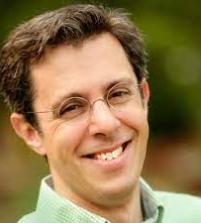
Time, Plague, and Politics at Passover
A new administration, a new pace for the news cycle, and a very old truth
One of the traditional lessons taught to Jewish children about the Exodus from Egypt is that the first commandment given to the Israelites is not about the Seder or commemorating the plagues. It is rather about time. “This month will be the first of the months for you,” God tells Moses and Aaron while still in Egypt (Exodus 12:2). From this verse, the Rabbis of the Talmud interpreted that it was the responsibilty of human eyes—their eyes—to determine when the new moon was officially seen each month along with the setting of the calendar. The enduring narrative significance, perhaps, is the suggestion that taking charge of our time is one of the first acts of freedom.
As we experience this second Passover of the pandemic, and this first Passover of the Biden/post-Trump era, I find myself reflecting on the ways time moves in us now. Some aspects of time have truly become fuzzy. Having spent nearly every working day in the same place in my house, in front of the same computer screen, without the old-normal movements of work both large (travel) and small (meeting a friend in a coffee shop), I find many days become what I increasingly hear referred to as “Blurrsday.” Our bodies, we have been reminded, need not only a clock but also spatial relations, movements, and the rhythms of the natural world, to experience and demarcate time.
Yet I also find that, in the absence of the frenetic/chaotic Trumpian energy that so animated the last four years of public life, time has returned to something more manageable. Through its absence, I have come to recognize the anxiety I carried in my chest and head for years as I learned to expect the unexpected—the latest cycle of tweet-plus-outrage-plus-more-tweeting-plus-more-outrage. While those cycles sped up time on the micro level, they also slowed it down on a larger scale, as I looked ahead to the day when public discourse might return to something more deliberative, when I wouldn’t feel that my time was being manipulated by the urges and outbursts of the world’s most powerful Twitter user. For years, that day couldn’t come soon enough.
Now that it has arrived—along with, not coincidentally, mass vaccinations for Americans—it seems we are again recalibrating our collective experience of time. Significantly, we’re now thinking about pacing in a different way: 100 million doses in 100 days, now replaced by 200 million doses in the same time (and, who knows, perhaps even to be revised upward yet again). Even as President Biden himself slows down the pace of day-to-day time, he moves with astonishing speed to capitalize on the window of political opportunity presented by the pandemic.
It is this last point that brings me back to Passover. The Exodus story toggles between a rapid boil and a slow simmer. Why do we eat matzah on Passover? Because the Israelites left in haste: “And they baked unleavened cakes of the dough that they had taken out of Egypt, for it was not leavened, since they had been driven out of Egypt and could not delay; nor had they prepared any provisions for themselves” (Ex. 12:39). And yet, in the very next verse, we are reminded, “The length of time that the Israelites lived in Egypt was four hundred and thirty years.” Four hundred and thirty years—and then, in the blink of an eye, a rush to leave so quickly that the dough didn’t have time to rise! As the next verse emphasizes: “At the end of the four hundred and thirtieth year, to the very day [my emphasis], all the ranks of the LORD departed from the land of Egypt.” Time moved so slowly for so long, and then a moment arrived to be seized, quickly.
Einstein taught us in scientific terms that time is not static but, as the name of his theory reminds us, relative. The twin upheavals of the pandemic and the change in administrations have forced on all of us—well, me anyway, but I presume you as well in your own way—a re-evaluation of our relationship, our relativity, with time in mind, body, and spirit. Jews have been observing Passover for long enough that, unsurprisingly, these dimensions are not so much new revelations as renewals, reawakenings, to truths long established but easily forgotten. This may be yet one more lesson: through the collective trauma of plague and suffering, our time changes along with our politics.
Sightings is edited by Daniel Owings, a PhD Candidate in Theology at the Divinity School. Sign up here to receive Sightings via email. You can also follow us on Facebook and Twitter. The views and opinions expressed in this article are those of the author and do not necessarily reflect the position of the Marty Center or its editor.


